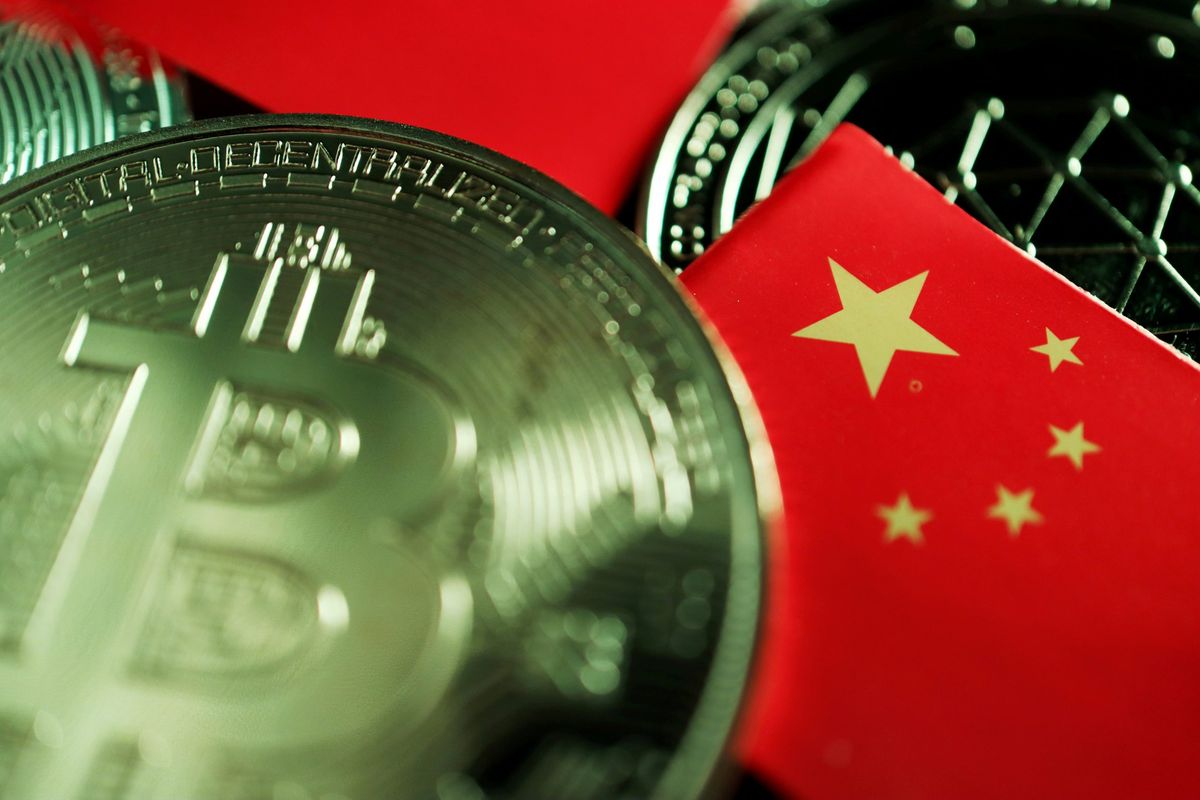What’s different about China’s ban on crypto this time?

A few minutes every morning is all you need.
Stay up to date on the world's Headlines and Human Stories. It's fun, it's factual, it's fluff-free.
Even if some do find a way to circumvent the regulations, there is no doubt that the industry has been affected. This time last year, China accounted for 75% of the world’s Bitcoin energy use. And, by April 2021, that number had fallen to 46%.
What’s the new crypto ban?
- In a Q&A posted on its website on September 24, the People’s Bank of China (PBOC) said that services for trading, order matching, token issuance and derivatives for all cryptocurrencies are strictly prohibited.
- In layman’s terms: everything you could ever possibly want to do with cryptocurrencies like bitcoin is no longer legal.
- The Q&A also added that foreign firms providing services to Chinese nationals would be investigated.
- The PBOC made it clear that the systems set up to monitor and root out crypto services and transactions had improved.
Is this the first time China has cracked down?
- No. Before this decision, there were several crackdowns, including the PBOC shutting down businesses that offered crypto services and making it clear to banks and large companies that they shouldn’t look to offer those services either.
- Some have said that this particular ban doesn’t offer anything new to the existing regulations.
- “There’s always something ‘different’ about the bans, but this happens all the time and it’s never really dramatic in the larger scheme of things,” said Meltem Demirors, the Chief Strategy Officer at Coinshares, to CNBC.
- But most have said this is China’s toughest stance yet, with the country issuing a blanket ban on all transactions that touch crypto.
- “Whilst this is not a surprise as China has ‘banned’ crypto many times in the past, this time there is no ambiguity,” tweeted PwC crypto leader Henri Arslanian. “Crypto transactions and crypto services of all kind are banned in China. No room for discussion. No gray areas.”
What’s the motivation behind the crackdown?
- Before this ban, China was a bit of a crypto mining hub because of its relatively low electricity costs and cheaper tech hardware.
- But the thing is, crypto mining consumes a notorious amount of electricity, and China has ambitious climate goals.
- Another reason is that China is working on its own digital currency, a version of the yuan, that would use many of the same technologies as standard cryptocurrencies.
Will this ban be effective?
- Some experts are skeptical about how effective the ban will be when it comes to actually stopping the production and trading of cryptocurrencies.
- According to James Ledbetter, editor of fintech newsletter FIN, China would have a pretty hard time banning crypto altogether.
- “I don’t think even a concerted effort among different countries and different central banks could actually shut down bitcoin,” said Ledbetter to CNBC. “I don’t think that’s technologically possible. But there are ways that bitcoin could be regulated.”
- In a Twitter thread, Arslanian said it’s worth watching how far China’s crypto users go to bypass the ban adding that it “will be difficult to stop people accessing #DeFi platforms, trade Bitcoin P2P, or even residents who buy crypto when overseas.”
- Even if some do find a way to circumvent the regulations, there is no doubt that the industry has been affected. This time last year, China accounted for 75% of the world’s Bitcoin energy use. And, by April 2021, that number had fallen to 46%.
What’s next?
- For China, what is worth paying attention to is what this ban will do to the entire crypto industry in the country.
- Elsewhere, though, the looming question for crypto enthusiasts and companies involved in the space is how the United States will regulate it going forward.
- “The bigger risk is the US regulatory apparatus emulates China,” said Demirors Washington, “has been increasingly aggressive with crypto enforcement, and clearly sees crypto as a threat to the government’s ability to manage markets.”
You drive the stories at TMS. DM us which headline you want us to explain, or email us at tips@themilsource.com







Comments ()